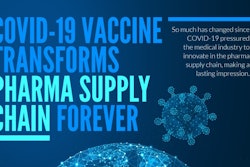
While there’s no doubt that healthcare enterprises can benefit from the growth and development of internet-based direct-to-consumer (DTC) solutions, oftentimes there is a divide between the traditional healthcare enterprise and technology and e-commerce-based options for growth and development. What most traditional healthcare companies don't understand is that they already possess the assets to create more successful patient-facing digital health services than any other type of companies. The challenge is that they're not well versed in digital strategies or technology, but long term, they stand to benefit most from the digital health trend and already possess the assets to be successful.
In fact, healthcare enterprises are closer to a fully-digital DTC model than they realize; they already operate within the pharmaceutical supply chain and already have many of the existing assets needed to make that shift. Add that to a growing reliance on telehealth and wearable tech due to the Coronavirus disease (COVID-19) pandemic, and opportunities for healthcare companies interested in entering the DTC marketplace have never been more plentiful. It’s just a matter of understanding where the benefits lie and how to make the most of them.
Prioritize the user experience
DTC brands, as the name suggests, need to be as consumer-friendly as possible during every step of the purchasing or brand engagement process. The core software your enterprise implements – whatever infrastructure processes patient intake questions, product selection, checkout and shipping – should be easy-to-use, flexible and reflect your brand.
With the COVID-19 pandemic ebbing and flowing, it’s clearer than ever that telehealth solutions are going to remain in high demand; now is the perfect time to solidify your standing in that industry from a platform perspective, especially if your healthcare enterprise is already plugged into the pharmaceutical supply chain.
Rather than spending money on pharmaceutical marketing or something similar, investing in software solutions that engage patients, doctors or consumers is a better bet in the long run.
Crafting this kind of user experience doesn’t have to be a heavy lift. There are companies and organizations that will help you piece all the software elements together that you need to build an effective DTC brand, and they’ll do it in a fraction of the time that it would have taken even a year ago.
Weave in compliance
Even as you’re creating an e-commerce-type experience for customers, it’s vital to remember that there’s a lot of red tape associated with prescription and medication dispensation that doesn’t extend to other DTC spaces. Typically, when a patient goes to a doctor’s office and then goes to a pharmacy to pick up a prescription, there are licensed practitioners facilitating that transfer of care, and that same mindset needs to be followed when it comes to creating a digital solution.
DTC platforms should be changed to plug-and-play provider and pharmacy networks and APIs where you don't have to worry about compliance and licenses in order to launch DTC digital health solutions quickly and efficiently. You also don't need to build your own relationships with doctors and pharmacies in every state now with these platform-like services.
So, if your enterprise is looking to embrace the digital era, look into existing solutions on the market and find software that will support it. It’s important that the solution complies with HIPAA (United States) or PIPEDA/PHIPA (Canada) in addition to being Legit Script-compliant. Although not the most challenging piece of the puzzle, it is absolutely important to consider in order to launch a fully marketable solution to patients.
Rethink marketing and user acquisition
Marketing and user acquisition might not be something your healthcare enterprise is used to prioritizing, especially since the way to go about this is typically different than the traditional pharma sales cycle that employs sales reps and traditional advertisements. The good news is that it’s easier to track a return on investment (ROI) when it comes to digital-first marketing than it is using the old pharmaceutical marketing models still popular among non-DTC enterprises.
With a digital platform, your enterprise will be able to access more detailed information about users – everything from demographic information to the types of drugs taken and frequency of orders users place – that you previously didn’t have access to. Digital platforms allow you to track users in a very specific way, which can help you hone and target marketing investments and easily watch your ROI.
Pharmaceutical companies should not miss out on this new opportunity since, increasingly, users want to use digital health and pharmacy solutions more than ever and existing marketing and sales reps spending will lead to better and clearer ROI in this sphere. Pharmaceutical companies already own the drugs fueling this fast-growing trend, and by taking advantage of this trend and building their own branded DTC solutions, they can capture higher margins and can lead to additional revenue streams and longer patient lifetime values, while ultimately providing value for the end patient.
Now more than ever, it is very clear that patients want to use digital products and respond well to easy, seamless, convenient solutions that will empower them to take charge of their own healthcare. If your healthcare enterprise is already plugged into the supply chain, whether through existing relationships with suppliers or because your organization is a supplier, there has never been a better time to develop your own branded solutions to retain customers and step into the era of DTC healthcare.




![Pros To Know 2026 [color]](https://img.sdcexec.com/mindful/acbm/workspaces/default/uploads/2025/08/prostoknow-2026-color.mduFvhpgMk.png?auto=format%2Ccompress&bg=fff&fill-color=fff&fit=fill&h=100&q=70&w=100)







![Pros To Know 2026 [color]](https://img.sdcexec.com/mindful/acbm/workspaces/default/uploads/2025/08/prostoknow-2026-color.mduFvhpgMk.png?ar=16%3A9&auto=format%2Ccompress&bg=fff&fill-color=fff&fit=fill&h=135&q=70&w=240)





